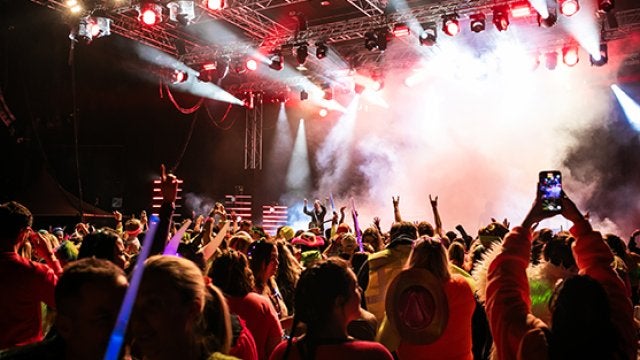The power of content in your corporate travel programme: Trends impacting experience

One of the top-line items for shaping efficient corporate travel programmes has been content. Forward-thinking procurement heads, travel managers, and arrangers have always sought rich and relevant content to enhance corporate travel management and improve the business traveller experience.
From availability, pricing to sustainability and convenience, air and hotel content plays a pivotal role in influencing decisions across travel programmes.
During a panel discussion on the ‘power of content in corporate travel programme’, industry experts from hotels, airlines and corporate operations, spoke at length about changing trends, occupancy, cost and convenience and new distribution capability (NDC).
Meet our panellists:
Hotel landscape: Trends, lead times and occupancy
During the discussion, Megha highlighted the shifting landscape in hotel availability and pricing strategies. She pointed out that the demand-supply equation is becoming tight, with occupancy rates climbing.
“Availability is crunching, and it is a direct factor of demand and supply. While we’ve inched up to 70% occupancy, primarily for this financial year (FY25), the projections continue to grow, inching up to 72-73% occupancies for India. In the upper scale and luxury space of hotels, we represent almost 35% of the inventory. It is primarily corporate travel that drives the business for lot of us,” said Megha.
Touching upon booking trends and bleisure, Megha pointed out the shift in booking window of five days and under.
“80% of the corporate travel continues booking in the window of seven days and under, but from the window of five days and under, I think there is a little bit of shift we’ve seen, corporates plan themselves a little more, keeping in view that availability could become a challenge in the shorter time limits. In bleisure space, we are seeing 2+ length of stays of a corporate traveller,” said Megha.
Flying high: Airline trends, self-serve, NDC
Sharing an airline perspective, Robyn took a more cautiously optimistic outlook because of booking and buying pattern. He stressed upon the important role of technology, artificial intelligence, AI, and self-serving tools.
“I also see the rise of TMCs (travel management companies). The future will be about integrating an end-to-end solution, a one-stop service centre, for corporate travellers. Integrating APIs of hotels, airlines, taxi companies, etc. I also see prevalence of loyalty programmes. We all are value hunters.
I am also cautiously optimistic for the corporate outlook is also based on spending and consumer trend, cost-optimisation, but more importantly sustainability. A lot more corporates are reporting sustainability efforts in their balance sheets and financial reports,” said Robyn.
He also spoke about NDC and the benefits of the new-age distribution. “NDC enables airlines to deliver rich, customised and user-friendly interfaces to the corporates and travel agents. Special fares, special ancillaries, and special fare products are distributed only through NDC,” he said.
Optimising business traveller experience
There is no denying business traveller experience is paramount, and content is one of the key elements that makes or breaks the entire business travel journey. Talking about TMCs and suppliers can elevate business trips, Prahallad introduced the concept of the 3Cs- control, cost, and convenience. He explained control happens through travel policies, where there are restrictions for different hierarchies, costs are managed through negotiated through suppliers, and convenience is when travellers can see options that they are eligible for.
“When all three are integrated, the corporate traveller sees he’s seamlessly moving from one to the other without realising that there are different platforms that are working together for him. And to take it forward, when it is integrated, even his expense statement and submission of expenses becomes an elevated experience. Tech is going to be an important aspect in integration,” said Prahallad.
Role of technology in shaping future partnerships
Tech advancements and personalisation were a key point of discussion. “Technology is democratised, and everybody wants to know everything what is there. Today, everything is becoming DIY so that they can do what they want on-the-go,” said Prahallad.
Bringing in the TMC perspective, Siddharth, who was also the moderator of the session, underlined the critical role of personalisation in the consumer journey, from the moment business travel is contemplated to post-booking experiences.
“I think being able to personalise the entire consumer journey- right from where he thinks of travel to the point where he confirms his travel, profiling, knowing your customer better, ownership of the customer is going to make the difference and everybody is working towards that,” said Siddharth.
Preparing for the future, today
A few key takeaways from the panel discussion were customised and end-to-end solutions for customers, integrated system, and AI-blended tech leveraged for repeat customers.
The panellists also spoke about sustainability, dynamic pricing, and strengthening partnership with TMCs.
“Technology is going to be a gamechanger. Integrating all platforms into a powerful tool is going to be the future of travel. Most importantly, how do we elevate the traveller’s experience without compromising on the costs will be key,” said Prahallad.






